Nation & World
-

Unfuzzy math: U.S. needs to do better
Ed School expert has some ideas, including a rethink of homework bans, after ‘discouraging’ results

-

What to expect when you’re elected
Bipartisan group of lawmakers gets to know Washington by way of the IOP
-

Defining and confronting campus antisemitism
Scholars in Jewish Studies say education, conversation can bolster efforts to defeat hate
-
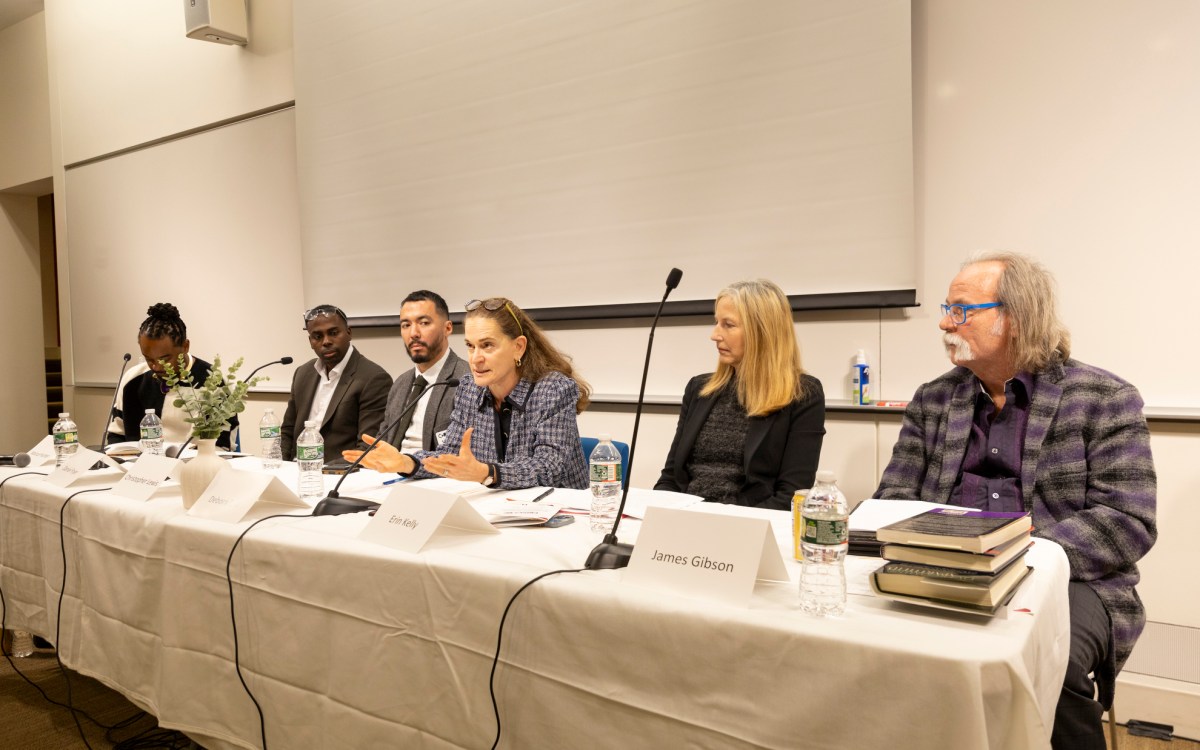
Are reparations the answer?
Harvard symposium explores case for restitution to Black Americans legally, economically, ethically
-

Exact cause of Notre-Dame fire still unclear. But disaster perhaps could’ve been avoided.
Leadership expert says foreseeable factors all contributed to complex failure. Consistent focus needed on best practices, rules, procedures.

-
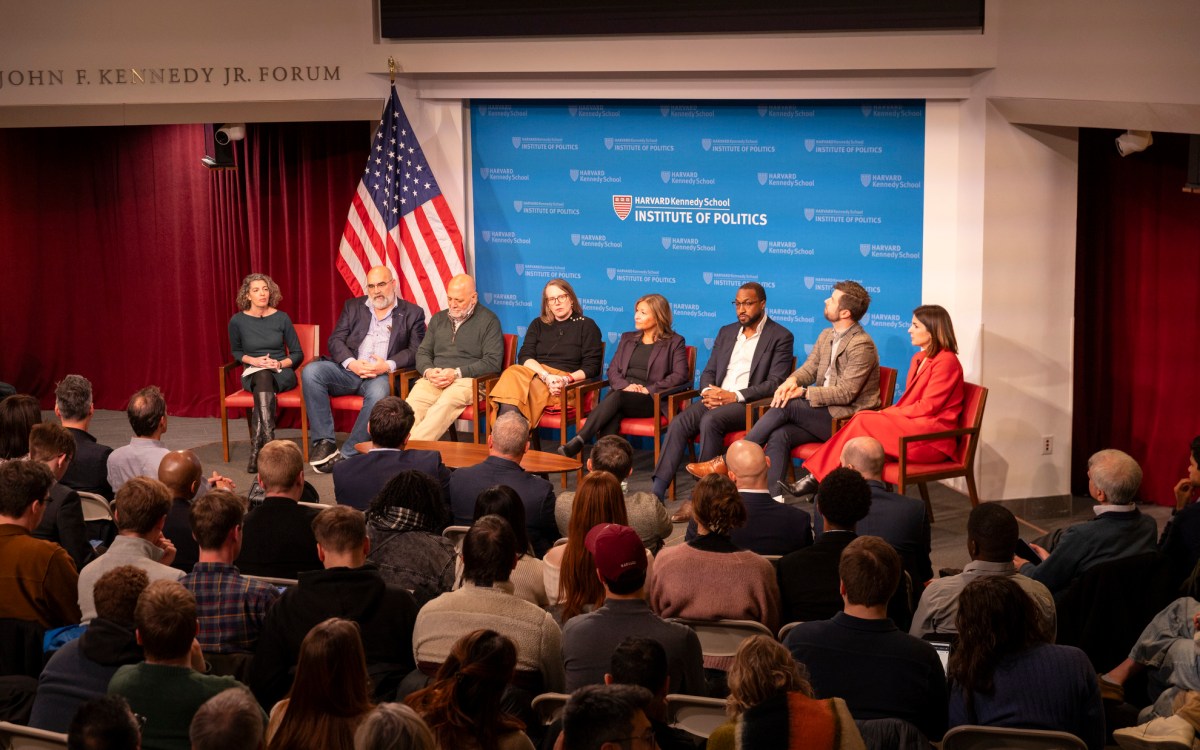
How the presidency was won, lost
Top campaign leaders from both sides talk about what worked, didn’t at Kennedy School postmortem
-
Summers takes the long view
Former Harvard President Lawrence Summers touches on the economy, his time in the White House, and the future of the American job market during a talk at the John F. Kennedy Jr. Forum.
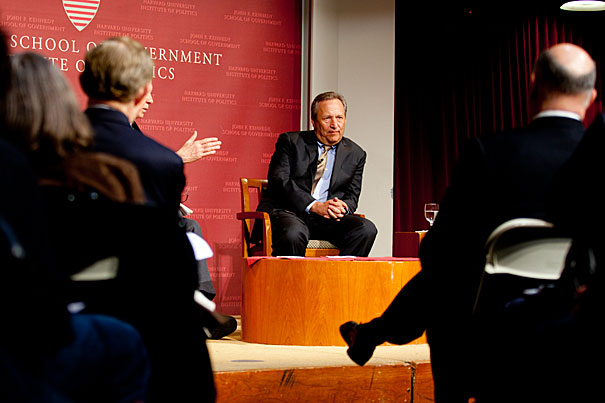
-
Pointing youth toward change
Harvard undergraduate group helps to teach leadership skills through after-school workshops in Boston schools and during a trip to Bhutan.
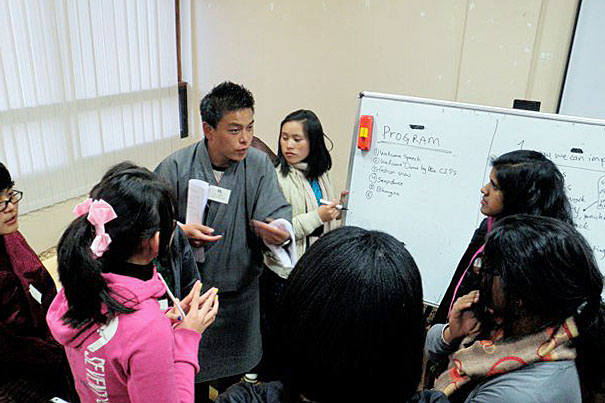
-
Fresh paths to success
A dean, a professor, and a former journalist are shaking up education and policy circles with a report that asks: What if not everyone had to go to college to have a good life?

-
Making a difference
Across the University, public service programs are thriving, reinforcing Harvard’s founding mission of providing assistance to others.
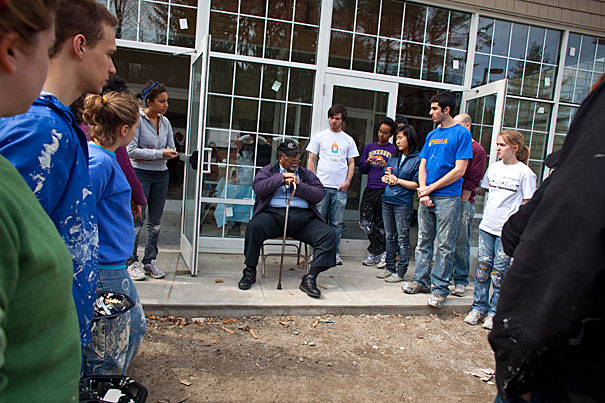
-
Teachers as part of the solution
President of the American Federation of Teachers outlined her “theory of action” for how to improve the nation’s public school system.
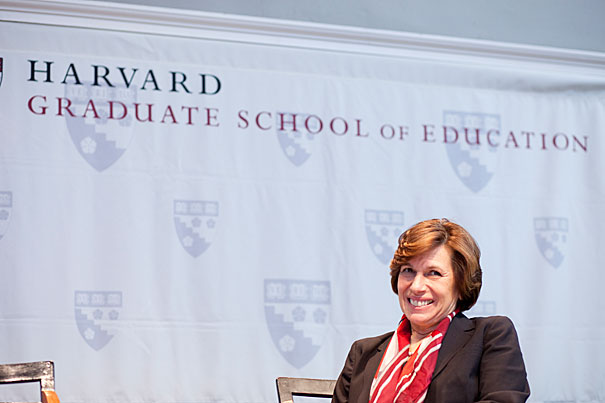
-
High-tech tools for change
Education leaders and entrepreneurs from around the world gathered at Harvard for the Advanced Leadership Initiative’s three-day think tank on education and technological innovation.
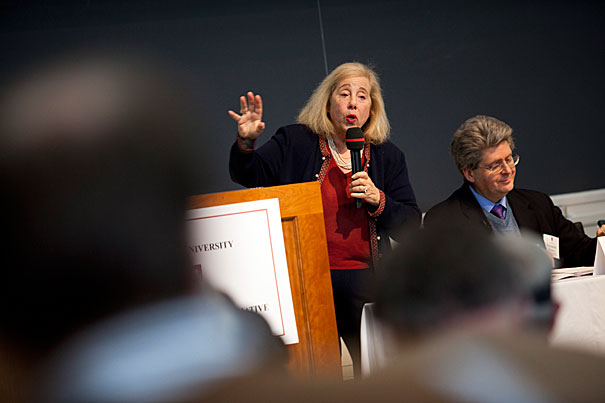
-
For Libya, ‘no compromise’ in sight
Libyans want freedom, but the road to democracy is paved with unanswered questions. With the country torn by internal warfare, former Libyan diplomat Ali Suleiman Aujali and other experts gathered at the Harvard Kennedy School to look for answers.
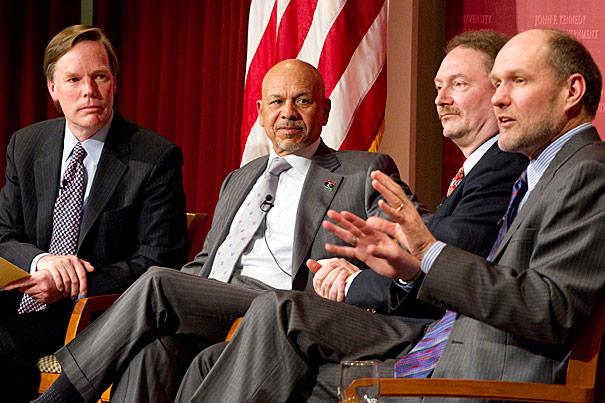
-
Starting up in hard times
In a down economy, thinking like entrepreneurs can help large companies to innovate and thrive, said business leaders at an event hosted by Harvard Business School and The Economist magazine on March 24.
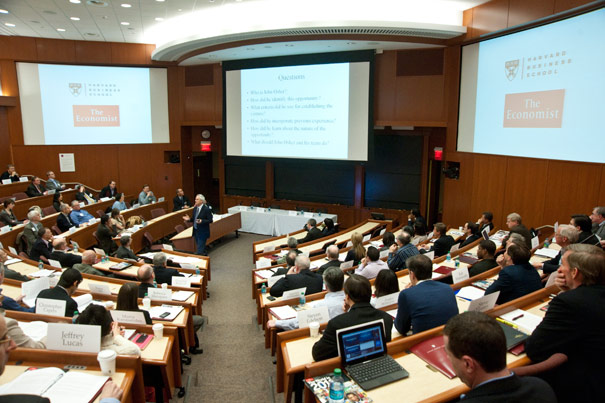
-
Tapping the ‘information fire hose’
Management of information flow and usage needs to be revamped to take advantage of two new information “fire hoses” enabled by modern technology: that which is conveyed from affected populations via social media and mobile technology, and information and analysis provided from a network of volunteers that has arisen around the world.
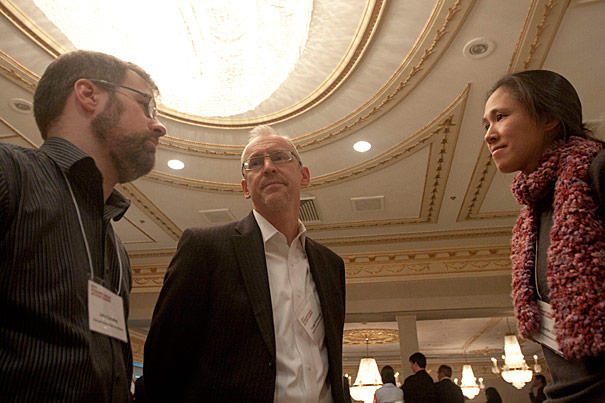
-
Thinking globally, differently
Harvard students now represent more than 50 countries and a spectrum of cultures, religions, and ethnic backgrounds. Because of that, teaching is changing too, said speakers at Conversations@FAS, a faculty forum.
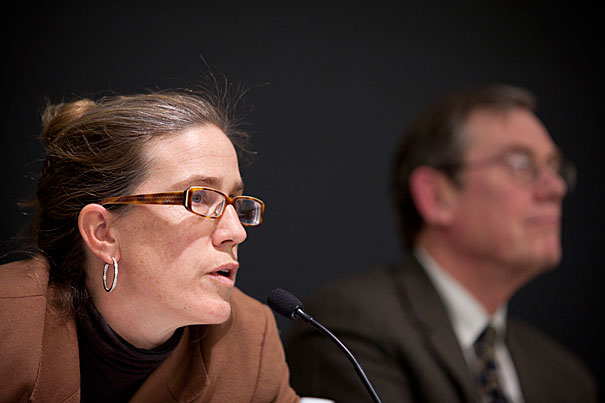
-
Lessons of the Haiti quake
Leaders of government, military, and nongovernmental organizations gathered at the Faculty Club and Loeb House to take a look back at the response to last year’s Haiti earthquake and seek lessons that can be applied to future disasters.
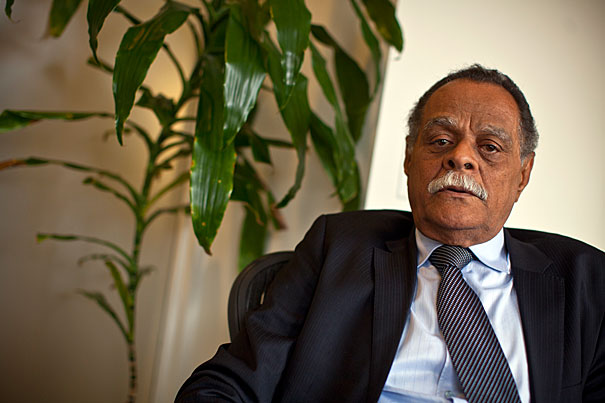
-
A constitutional question
A panel of legal scholars examined whether health care reform is constitutional during a panel at Harvard Law School.
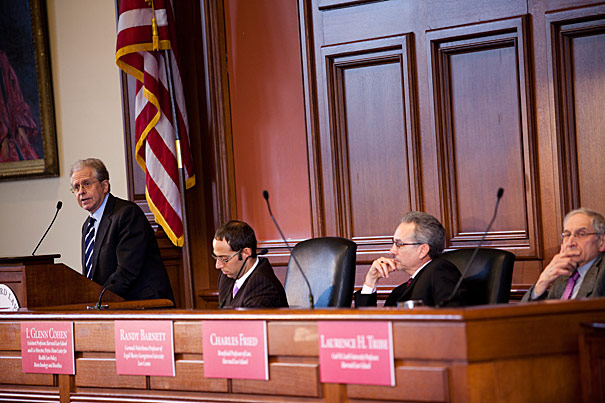
-
At ground zero in coastal Japan
In a rare opening for American-trained physicians, three Harvard doctors spend time bringing medical aid to a tsunami-stricken city in coastal Japan.
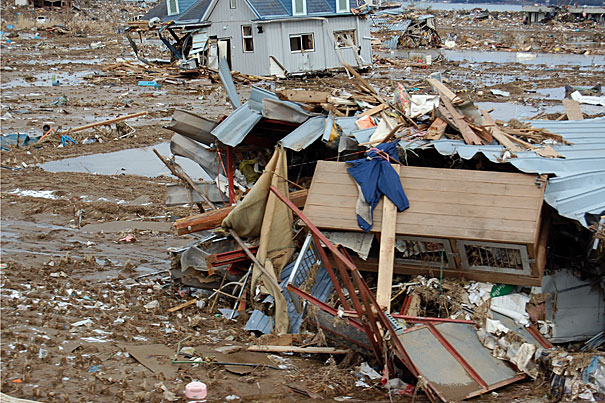
-
‘Crisis in Japan: The Way Forward’
The disaster created when an earthquake, tsunami, and nuclear crisis struck Japan may be entering a new stage as the effects start to ripple through the country’s economy, politics, and society, according to a panel of Harvard analysts and Japanese officials.
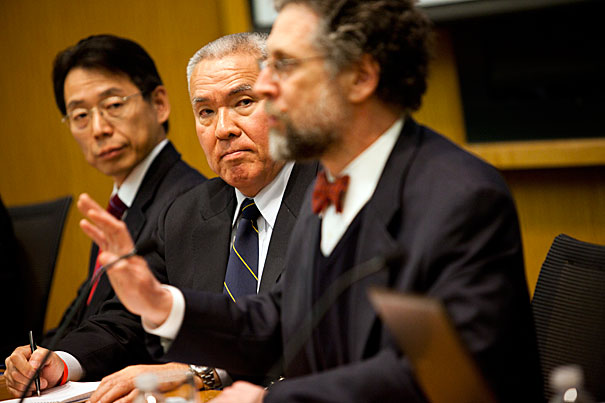
-
Spotlight on Harvard in Brazil
President Drew Faust is traveling this week to highlight Harvard’s engagement with Latin America. In Brazil, she is reconnecting with alumni, exchanging ideas with the leaders of local universities, and meeting with Brazilian students who have studied alongside Harvard students or with Harvard faculty in Brazil.
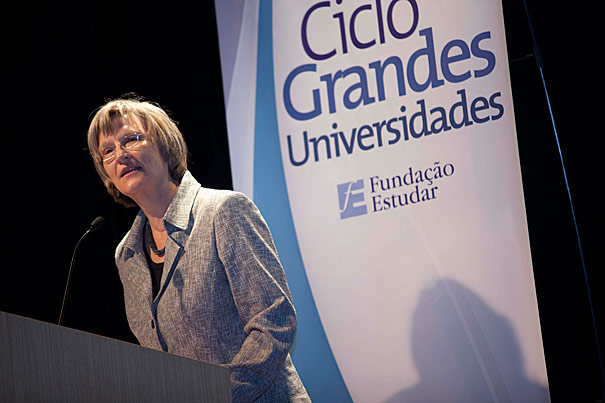
-
The road to Chile, Brazil
On her South American trip, Harvard President Drew Faust meets with government and academic leaders, reconnects with Harvard alumni, and views the tangible benefits of the University’s research.
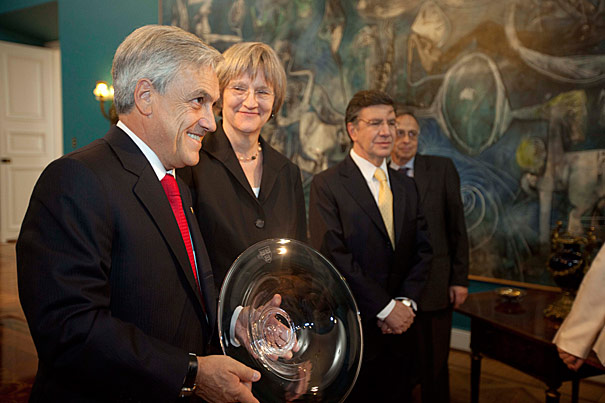
-
Do ask, do tell
Former Army helicopter pilot finds a home at Ed School, hopes that reversal of policy on gays in military may allow her return to service.
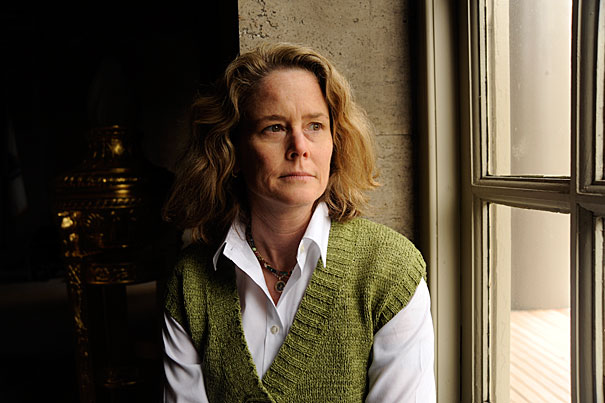
-
The tipping point
Seemingly overnight, people in the Mideast and North Africa have risen in anger to demand more freedom. Is this the beginning of democracy in the Arab world, or a new era of political chaos? Harvard analysts offer insights on what is likely to come next.

-
Harvard’s efforts to help Japan
The University responds to the tragedy that struck Japan in myriad ways — with a benefit concert, discussions by experts, and a web portal to ease information flow.
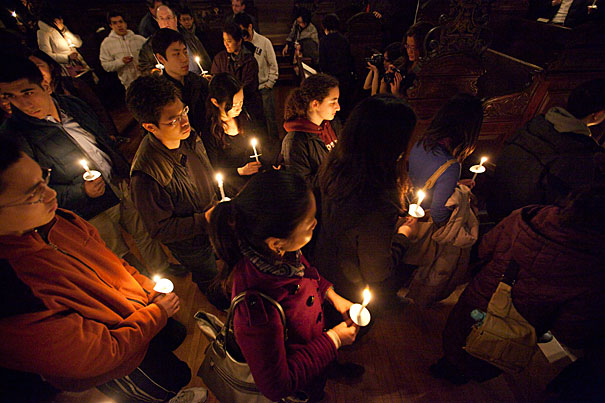
-
Spotlight on Harvard in Chile
President Drew Faust is traveling this week to highlight Harvard’s engagement with Latin America. In Chile, she is meeting with government and academic leaders and getting a firsthand look at the tangible benefits of Harvard research.
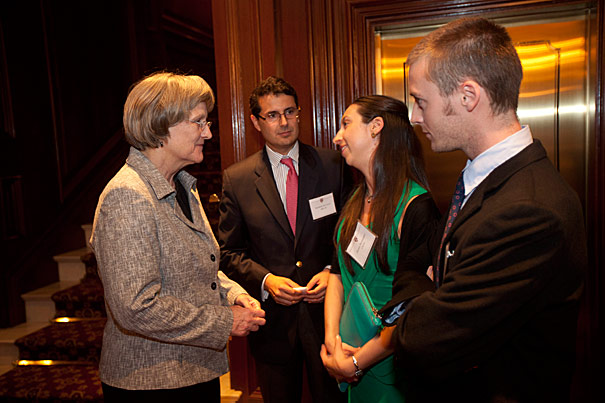
-
Harvard rushes to aid Japan
The University responds to the tragedy that struck Japan last week in myriad ways — with a benefit concert, discussions by experts, and a web portal to ease information flow.
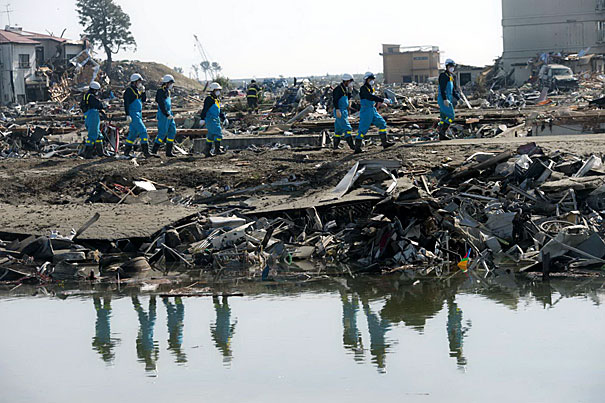
-
Three crises for Japan
Addressing a forum on Japan’s crises, Harvard analysts describe how public trust in relief efforts, logistical obstacles to aid, and foreign sensitivity to Japanese culture are all keys to an effective disaster response.
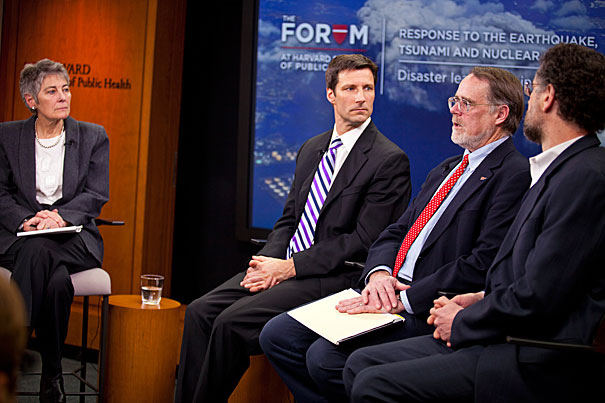
-
Empowering women in Africa
On a visit to Harvard to participate in a two-day gender conference sponsored by the Radcliffe Institute for Advanced Study, Malawi Vice President Joyce Banda discussed issues facing her African country, including women’s health, education, and the importance of promoting women leaders.

-
Understanding Obama
Professor James Kloppenberg, author of “Reading Obama: Dreams, Hope, and the American Political Tradition,” took questions from five panelists on the impact of Obama’s presidency at an event sponsored by the Mahindra Humanities Center at Harvard.
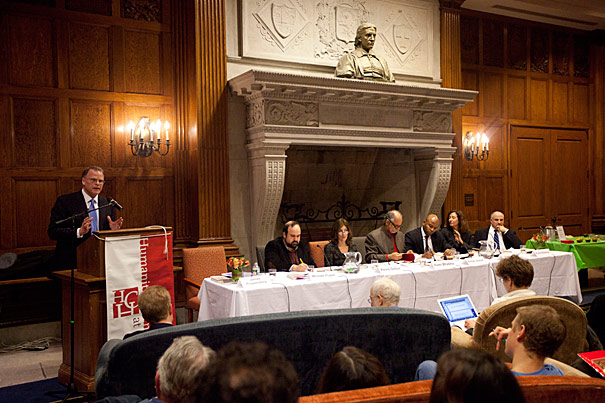
-
A thorny path to reform
Edward Schumacher-Matos of Harvard Kennedy School moderated a panel discussion featuring three of the country’s foremost immigration scholars.
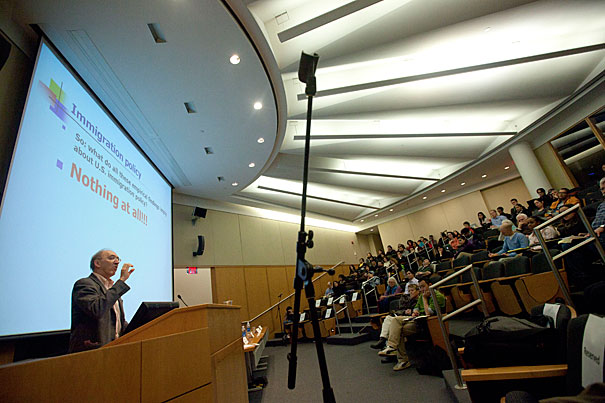
-
The promise of journalism
New York Times op-ed columnist Frank Rich ’71 receives the Goldsmith Career Award and suggests good days are still ahead for significant, game-changing journalism.
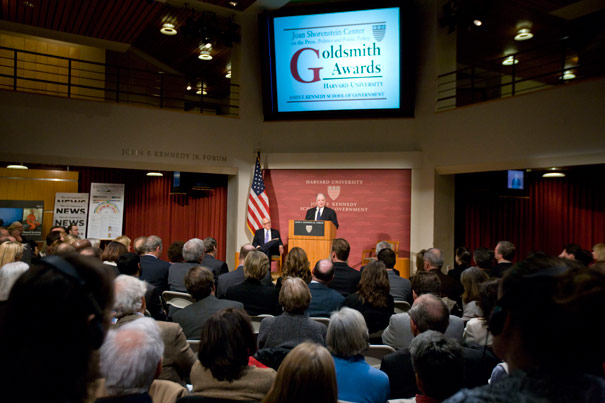
-
The need for men to back women
A two-day conference on gender examined various dimensions to empowering the lives of women in developing nations.
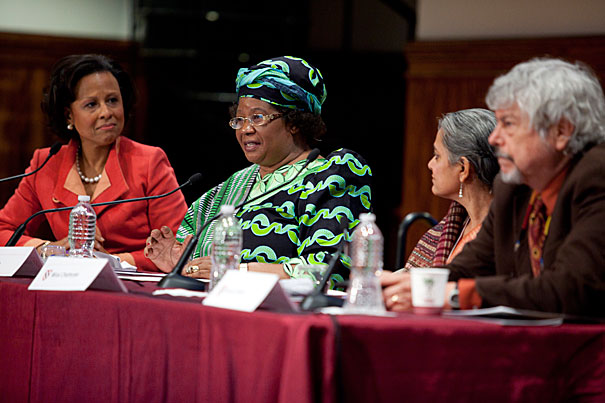
-
Lesotho: MDRTB Outpatients
The tiny African nation of Lesotho is among those hardest hit by the raging twin epidemics of ADIS and tuberculosis. Harvard faculty members are advising the government and helping to revamp clinics and treat patients in the far-flung mountain regions of this poor country.
-
Congo: Survivors Song
Researchers from the Harvard Humanitarian Initiative have been working in the Democratic Republic of the Congo for several years examining the roots of the violence against women that has plagued this war-torn region.
-
South Africa: Durban Labs
One of the continent’s richest nations, South Africa also has one of the world’s highest HIV infection rates and is home to the world’s biggest population of HIV-infected people, an estimated 5.5 million.

